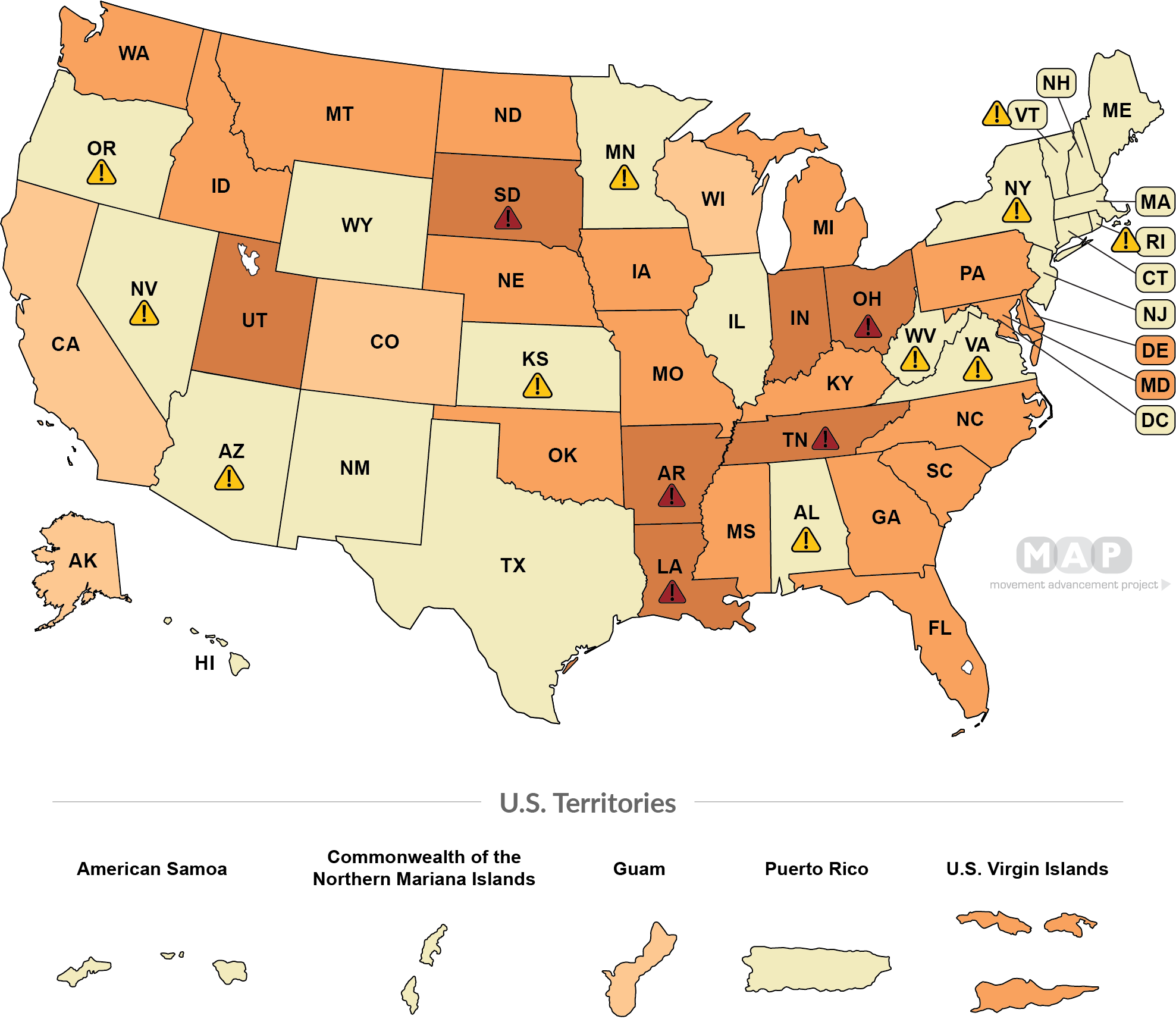| State |
HIV criminalization law and sentencing enhancements or sex offender registration (or both) |
HIV criminalization law only |
No HIV criminalization law but does have HIV-specific sentencing enhancements |
No HIV-specific law |
| |
Citations
|
|
|
|
| Alabama |
|
|
|
State has this law |
| Alaska |
|
|
State does not have this law |
|
| American Samoa |
|
|
|
State has this law |
| Arizona |
|
|
|
State has this law |
| Arkansas |
State does not have this law |
|
|
|
| California |
|
|
State does not have this law |
|
| Colorado |
|
|
State does not have this law |
|
| Connecticut |
|
|
|
State has this law |
| Delaware |
|
State does not have this law |
|
|
| District of Columbia |
|
|
|
State has this law |
| Florida |
|
State does not have this law |
|
|
| Georgia |
|
State does not have this law |
|
|
| Guam |
|
|
State does not have this law |
|
| Hawaii |
|
|
|
State has this law |
| Idaho |
|
State does not have this law |
|
|
| Illinois |
|
|
|
State has this law |
| Indiana |
State does not have this law |
|
|
|
| Iowa |
|
State does not have this law |
|
|
| Kansas |
|
|
|
State has this law |
| Kentucky |
|
State does not have this law |
|
|
| Louisiana |
State does not have this law |
|
|
|
| Maine |
|
|
|
State has this law |
| Maryland |
|
State does not have this law |
|
|
| Massachusetts |
|
|
|
|
| Michigan |
|
State does not have this law |
|
|
| Minnesota |
|
|
|
State has this law |
| Mississippi |
|
State does not have this law |
|
|
| Missouri |
|
State does not have this law |
|
|
| Montana |
|
State does not have this law |
|
|
| Nebraska |
|
State does not have this law |
|
|
| Nevada |
|
|
|
|
| New Hampshire |
|
|
|
State has this law |
| New Jersey |
|
|
|
|
| New Mexico |
|
|
|
State has this law |
| New York |
|
|
|
State has this law |
| North Carolina |
|
State does not have this law |
|
|
| North Dakota |
|
State does not have this law |
|
|
| Northern Mariana Islands |
|
|
|
State has this law |
| Ohio |
State does not have this law |
|
|
|
| Oklahoma |
|
State does not have this law |
|
|
| Oregon |
|
|
|
State has this law |
| Pennsylvania |
|
State does not have this law |
|
|
| Puerto Rico |
|
|
|
State has this law |
| Rhode Island |
|
|
|
State has this law |
| South Carolina |
|
State does not have this law |
|
|
| South Dakota |
State does not have this law |
|
|
|
| Tennessee |
State does not have this law |
|
|
|
| Texas |
|
|
|
State has this law |
| U.S. Virgin Islands |
|
State does not have this law |
|
|
| Utah |
State does not have this law |
|
|
|
| Vermont |
|
|
|
State has this law |
| Virginia |
|
|
|
State has this law |
| Washington |
|
State does not have this law |
|
|
| West Virginia |
|
|
|
State has this law |
| Wisconsin |
|
|
State does not have this law |
|
| Wyoming |
|
|
|
State has this law |
| Totals |
7 states |
18 states, 1 territory |
4 states, 1 territory |
21 states , 3 territories + D.C. |




